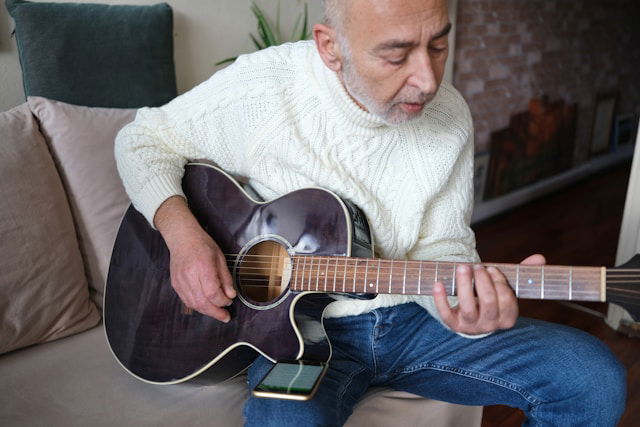
A new study in the UK has found that using music therapy on dementia wards could help calm patients and improve their care.
Researchers from Anglia Ruskin University (ARU) and Cambridgeshire and Peterborough NHS Foundation Trust tested a music-based approach called MELODIC in two NHS hospitals that care for people with dementia.
Dementia patients in mental health wards often experience extreme distress, which can be difficult for healthcare workers to manage. Many patients are given strong medications, called psychotropic drugs, to help reduce their symptoms. However, experts have been looking for safer and more compassionate alternatives.
The MELODIC program involves placing a trained music therapist directly on the ward. The therapist runs music sessions, creates music care plans for each patient, and shows family members and staff how music can be used in everyday care. This might include listening to favorite songs, singing, or playing simple instruments.
The study’s results, published in the journal Frontiers in Psychiatry, suggest that this kind of music therapy can help reduce distress. Patient data showed a small improvement in quality-of-life scores and less severe distress and disruption.
However, there was a slight increase in agitation levels. Importantly, no harmful events were linked to the music therapy sessions.
Naomi Thompson, the study’s lead author and a researcher at ARU, said that patients with dementia in mental health wards often suffer greatly, and staff are under huge pressure. The MELODIC program offers a possible new way to support these patients in a gentle and meaningful way, rather than relying on medication.
The team designed the program after speaking with 49 people, including healthcare staff, patients, and family members, to learn about their experiences and how music might help. This feedback helped shape the therapy model.
The music therapy approach is also affordable. The program costs about £2,025 per month to pay the therapist and £400 for basic music equipment, making it a low-cost option that could be used in more hospitals.
Dr. Ben Underwood, a consultant psychiatrist and research director at CPFT, said that many people with dementia become so confused and distressed that they must be hospitalized for safety. It’s often hard to calm patients in this setting, and stressful for everyone involved. He hopes that using music can bring relief to patients, families, and staff alike.
The study was funded by the National Institute for Health and Care Research (NIHR). Researchers say more studies are needed, but this pilot shows that music therapy could be a safe, cost-effective, and compassionate addition to dementia care in hospitals.
If you care about dementia, please read studies that eating apples and tea could keep dementia at bay, and Olive oil: a daily dose for better brain health.
For more health information, please see recent studies what you eat together may affect your dementia risk, and time-restricted eating: a simple way to fight aging and cancer.
The study is published in Frontiers in Psychiatry.
Copyright © 2025 Knowridge Science Report. All rights reserved.



